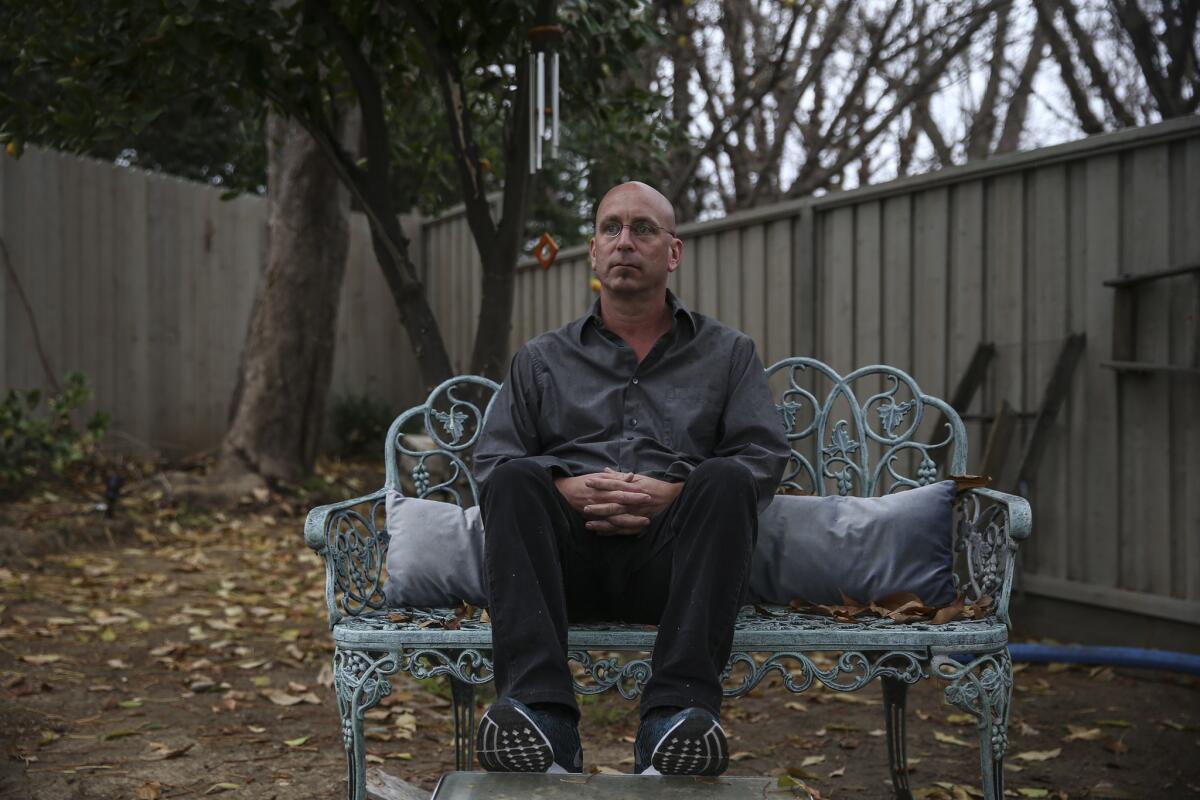Opinion: Exonerations of the wrongfully convicted are on the rise

Bruce Lisker, who was wrongly convicted of murder, is to receive $7.6 million from the city of Los Angeles. Such exonerations are on the rise across the nation, according to a new report.
If you thought there were a lot of news stories last year about wrongfully convicted people finally getting justice, well, you were right. According to a report by the National Registry of Exonerations, at least 149 people were cleared in 2015 of committing crimes for which they had been convicted. More than a third of the cases involved homicides (including manslaughter), and five resulted in people being freed from death row.
Given how many criminal convictions there are in this country each year, 149 exonerations is a small number. But the most interesting thing about the report is that the exonerations followed an increase in the creation of conviction integrity units -- usually prosecutors’ panels with the responsibility for reviewing closed cases in which fresh questions have been raised about the guilt of the defendant.
In other words, the more investigators looked, the more wrongful-conviction cases they found, which suggests that the 2015 exonerations, while a record, are likely just the tip of a poorly understood and underdocumented iceberg.
And despite common perceptions of new DNA testing undoing bad convictions, such cases only accounted for a quarter of all exonerations. Most were undone through re-investigations by defense attorneys, activist groups and the conviction integrity units, and they hinged on misconduct by police and prosecutors, or lying witnesses. In 27 cases, police obtained false confessions, most often through coercion or tricking intellectually disabled suspects into confessing.
Further, 45% of the exonerations came in cases in which the defendant pleaded guilty -- again, acceding to misconduct and often as a tradeoff, believing it better to take a short sentence than risk a longer one at trial.
That is an atrocious miscarriage of justice, with repercussions not only for the defendants, but for their families.
As I’ve argued before, this clear fallibility of the criminal justice system is one of the strongest arguments against capital punishment. But falsely imprisoning people for lesser crimes is nearly as abominable. Local jurisdictions need to get more proactive in addressing the issue, including establishing more conviction integrity units. Los Angeles County Dist. Atty. Jackie Lacey established such a unit last summer, using nearly $1 million to hire three lawyers and a paralegal to review potential cases.
Of course, such units are only as effective as top prosecutors make them, and critics fear they serve as window-dressing rather than real reform. But in some jurisdictions, such as Brooklyn, N.Y., and Harris County, Texas, the units have made a difference, as has the nation’s only statewide office in North Carolina.
Still, it takes diligence by such groups as the Innocence Project and clinics established at various law schools around the country to unravel most of these cases. That such efforts are so necessary, and so successful, underscores the failure at the beginning of the process, with police and prosecutors too often subverting justice in the quest for a quick close or another conviction, and too often with no repercussions.
It’s hard to find the line between travesty and tragedy here.
Twitter: @smartelle
More to Read
A cure for the common opinion
Get thought-provoking perspectives with our weekly newsletter.
You may occasionally receive promotional content from the Los Angeles Times.











